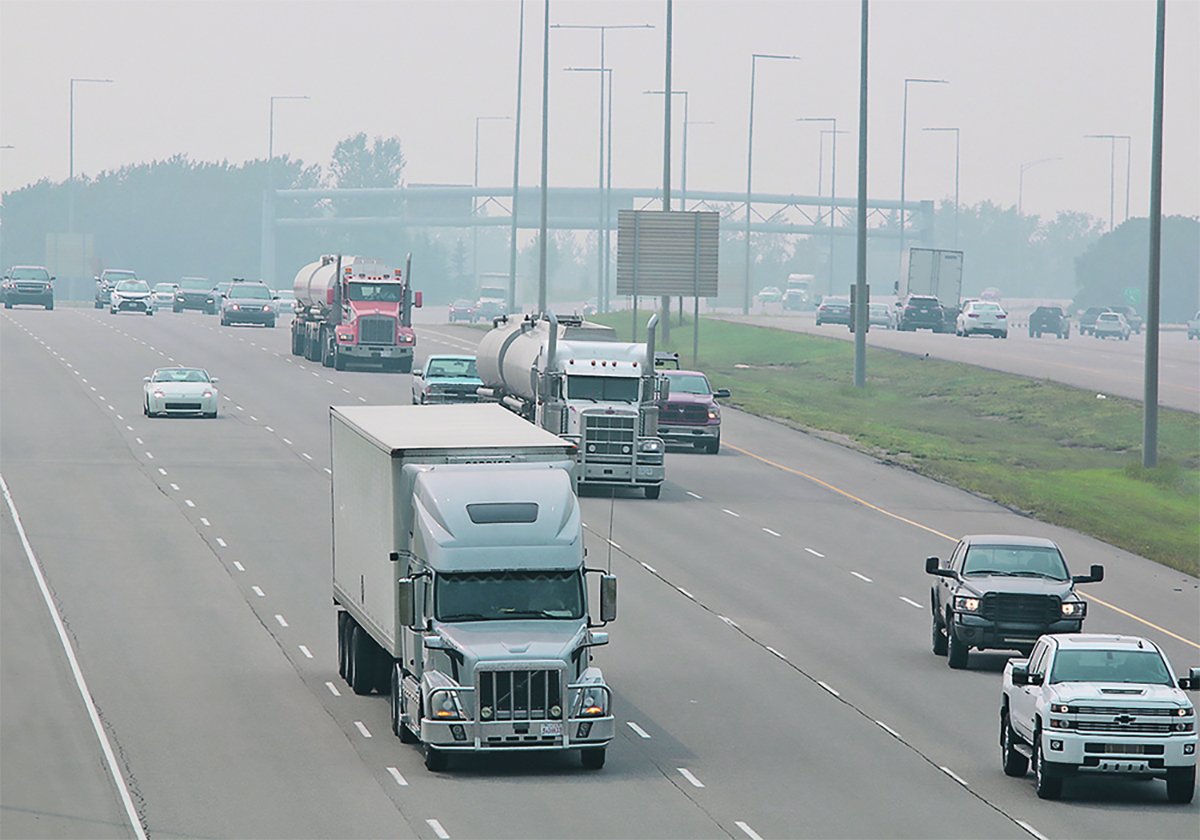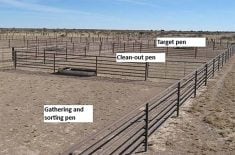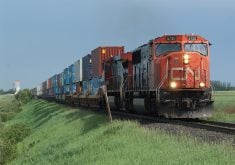The Alberta government has ordered the closure of five driver training schools and issued 39 disciplinary letters, more than $100,000 in administrative penalties and six corrective action plans, revoked 12 instructor licences and sent four warning letters to driver examiners.
The province says the action was taken following inspections, audits and targeted investigations of driver training schools and carriers.
“It was a targeted crackdown. We saw an alarming increase in the amount of bridge strikes and calls and letters coming into the department of unsafe trucking incidents. This was a bigger, broader audit of the driver training schools that we took the initiative to try to crack down on this disturbing trend,” said Devin Dreeshen, minister of transportation and economic corridors.
Read Also

Farm Credit Canada partners with major Toronto innovation hub
A FCC parntership with MaRS Discovery District aims to solve technology problems in food supply chains.
“Our families’ safety won’t be put at risk by reckless operators who ignore the rules. Anyone cutting corners or operating unsafe trucks will be removed from our roads. Alberta truckers have earned a reputation as some of the most trusted drivers in the country, and we will not allow a few bad actors to undermine that trust.”
Thirteen commercial trucking companies have also been removed from Alberta’s roads due to poor on-road performance, unsafe equipment or failure to meet mandatory safety standards. Of those, seven were identified as “chameleon” carriers – companies that try to avoid regulatory oversight by changing names, creating new entities or relocating operations across jurisdictions.
The provincial government said it is working with federal and provincial/territorial partners to strengthen enforcement across jurisdictions. Work is also underway by the Canadian Council of Motor Transport Administrators to develop a national database to address the loophole that carriers currently use to exploit gaps in inter-provincial data sharing and enforcement.
“We’ve developed a made in Alberta change for a Class One learning pathway, Dreeshen said.
“Eventually we want trucking to be a Red Seal. You look at at a Red Seal certification for a chef, we think obviously there should be that point of pride in the trucking industry, but it takes five other provinces to recognize it as a trade. That’s something we’re still working with other provinces to be able to officially have trucking as an apprenticeship.”
This would include requiring 125 to 133 in-truck training hours, well above the national mandatory entry-level training minimum.
“Elevating driver training standards to align with the established benchmarks of a designated trade with the ultimate goal of achieving Red Seal designation for the transportation industry represents a significant and positive step forward,” aded Don MacDonald, interim chair of the Professional Truck Training Alliance of Canada, said in a press release.
“This initiative is supported by the (PTTAC) and will not only contribute to safer roadways but also foster greater professionalism and integrity across all sectors of the industry.”
Alberta is also targeting the misclassified driver scheme known as Drivers Inc., in which companies hire drivers as independent contractors to avoid payroll taxes and benefits.
These drivers often lack proper training and oversight and are vulnerable to exploitation. In July 2025, a week-long commercial driver status and classification check stop revealed that 20 per cent of the 195 drivers who were stopped were suspected of being misclassified, including several temporary foreign workers.
To further strengthen the trucking industry, the Alberta government is looking to changes in its Traffic Safety Act. One regulatory change would be requiring the driver’s driving record to follow the individual instead of the carrier with which the driver is associated .
“If it’s an issue with the vehicle, it’s obviously not the driver’s fault. Those types of incidences should follow the carrier. But, if it is driver error, we’re seeing drivers jump into other carriers without the new carrier knowing the past driving record of that driver. We’re making sure there’s more accountability in the trucking industry.”
Dreeshen said these measures will benefit the agriculture sector.
“Maybe I’m a little biased because I am a (fifth-gerneration) farmer. Truckers used to have the reputation of being the best out on the road. You’d have people that would be following semis because they know … the trail that the semi is blazing in the middle of winter is good. Hats off to the amazing truckers that we have doing the work that they do every day to put put food on store shelves and to make sure that we have such a high quality life that we have.”















